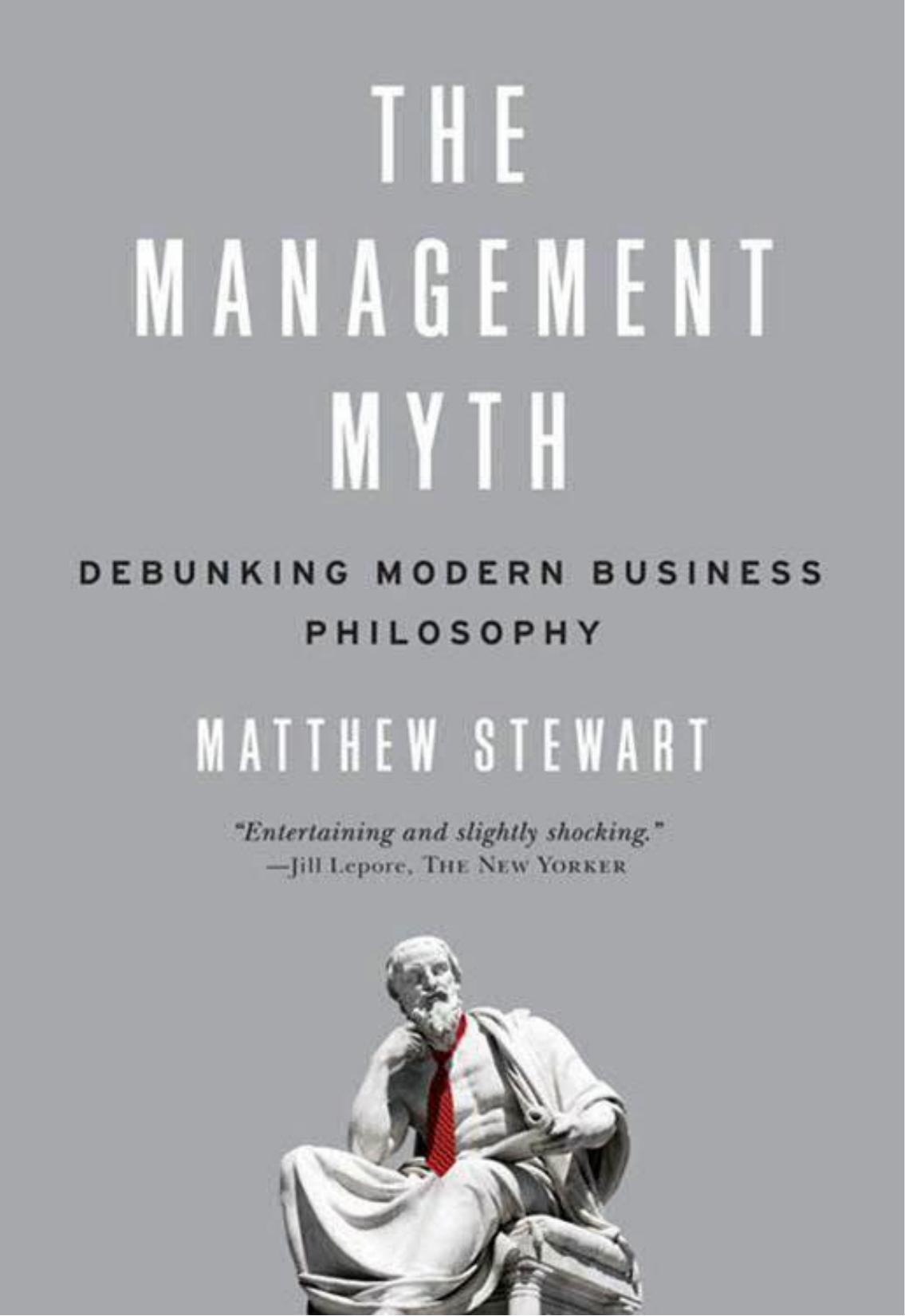The Management Myth: Debunking Modern Business Philosophy by Matthew Stewart

Author:Matthew Stewart [Stewart, Matthew]
Language: eng
Format: epub, pdf
Tags: Business & Economics, Management Science, Management
ISBN: 9780393072747
Google: 7bOWrgBV64cC
Amazon: B002PQ7B72
Publisher: W. W. Norton & Company
Published: 2009-08-10T00:00:00+00:00
A Case Study in Strategy
* * *
The Three Generic Strategies for Success
1. Be born well.
2. Bet big.
3. Work hard.
* * *
* * *
Maxim: The less strategy you make, the more options you keep.
* * *
“It’s amazing how people will consistently undersell themselves,” Owen said mostly to himself, shaking his head with a wry smile as he got off the phone. “But that’s our opportunity.”
He looked like a poker player reluctantly collecting winnings from people who just shouldn’t have been at the table. I knew he was talking about yet another senior recruit. We were hiring them by the dozen at the time. As it happened, I had come back to New York to discuss hiring some partners for a new office I wanted to help open in Spain. Owen’s words stayed with me long after the details of the negotiations faded. As only gradually became clear to me, they expressed the essence of one version of our firm’s business strategy—the twisted version. There was, in fact, no shortage of other strategic frameworks to explain what we were doing. One of them must have worked for a while, at least, because the firm did very well in its first years.
The first theory of the firm, which we discussed on “Independence Day” and which provided the initial rationale for the venture, loosely followed the style of Michael Porter’s theory of competitive strategy. Our overall goal was to become a “Type 1” or “prestige” consulting firm. That is, we were going to pursue what Porter would call a “quality” or “differentiation” strategy. We said “Type 1” or “prestige” in deference to an awkward fact about our industry. The dirty little secret of the strategy consulting business is that most of the work involves strategy only in the sense that cleaning the kitchen can involve strategy—at least, when the boss tells you to do it. The term strategy in “strategy consulting” actually means “high-ranking.” A strategy consulting firm is one that works for people higher up in a bureaucratic hierarchy. Not coincidentally, strategy in this context is also a synonym for “extremely expensive.” The most reliable way to distinguish a strategy consulting firm from a body shop is that the former will charge up to three times as much in fees per consultant.
The more specific, Porterite argument for our existence had to do with the subsector of the extremely expensive high-ranking consulting market from which our group had historically derived most of its work—the sector serving large financial institutions. In this highly profitable submarket, it was observed, there was one dominant player—McKinsey—which accounted for more than half the market, and a number of much smaller players (such as my previous employer) who for one reason or another could not or would not compete at scale. The theory was that we could turn McKinsey’s quasi monopoly into a duopoly. Clients would welcome having a choice between similar firms (most of our consultants were ex-McKinseyites, after all), and we might even be able to claim an edge by being specialists in the sector.
Download
The Management Myth: Debunking Modern Business Philosophy by Matthew Stewart.pdf
This site does not store any files on its server. We only index and link to content provided by other sites. Please contact the content providers to delete copyright contents if any and email us, we'll remove relevant links or contents immediately.
| Consulting | Entrepreneurship |
| Franchises | Home Based |
| Marketing | New Business Enterprises |
| Nonprofit Organizations & Charities |
Pioneering Portfolio Management by David F. Swensen(5606)
Zero to One by Peter Thiel(4824)
Man-made Catastrophes and Risk Information Concealment by Dmitry Chernov & Didier Sornette(4735)
The Motivation Myth by Jeff Haden(4524)
The Miracle Morning by Hal Elrod(3910)
Elon Musk by Ashlee Vance(3455)
The Art of Persistence: Stop Quitting, Ignore Shiny Objects and Climb Your Way to Success by Michal Stawicki(3367)
Unlabel: Selling You Without Selling Out by Marc Ecko(2981)
Urban Outlaw by Magnus Walker(2950)
Delivering Happiness by Tony Hsieh(2922)
Purple Cow by Seth Godin(2698)
Mastering Bitcoin: Programming the Open Blockchain by Andreas M. Antonopoulos(2510)
The Content Trap by Bharat Anand(2493)
The Marketing Plan Handbook: Develop Big-Picture Marketing Plans for Pennies on the Dollar by Robert W. Bly(2413)
The Power of Broke by Daymond John(2376)
The Airbnb Story by Leigh Gallagher(2370)
Applied Empathy by Michael Ventura(2328)
Radical Candor by Kim Scott(2215)
Keep Going by Austin Kleon(2160)
